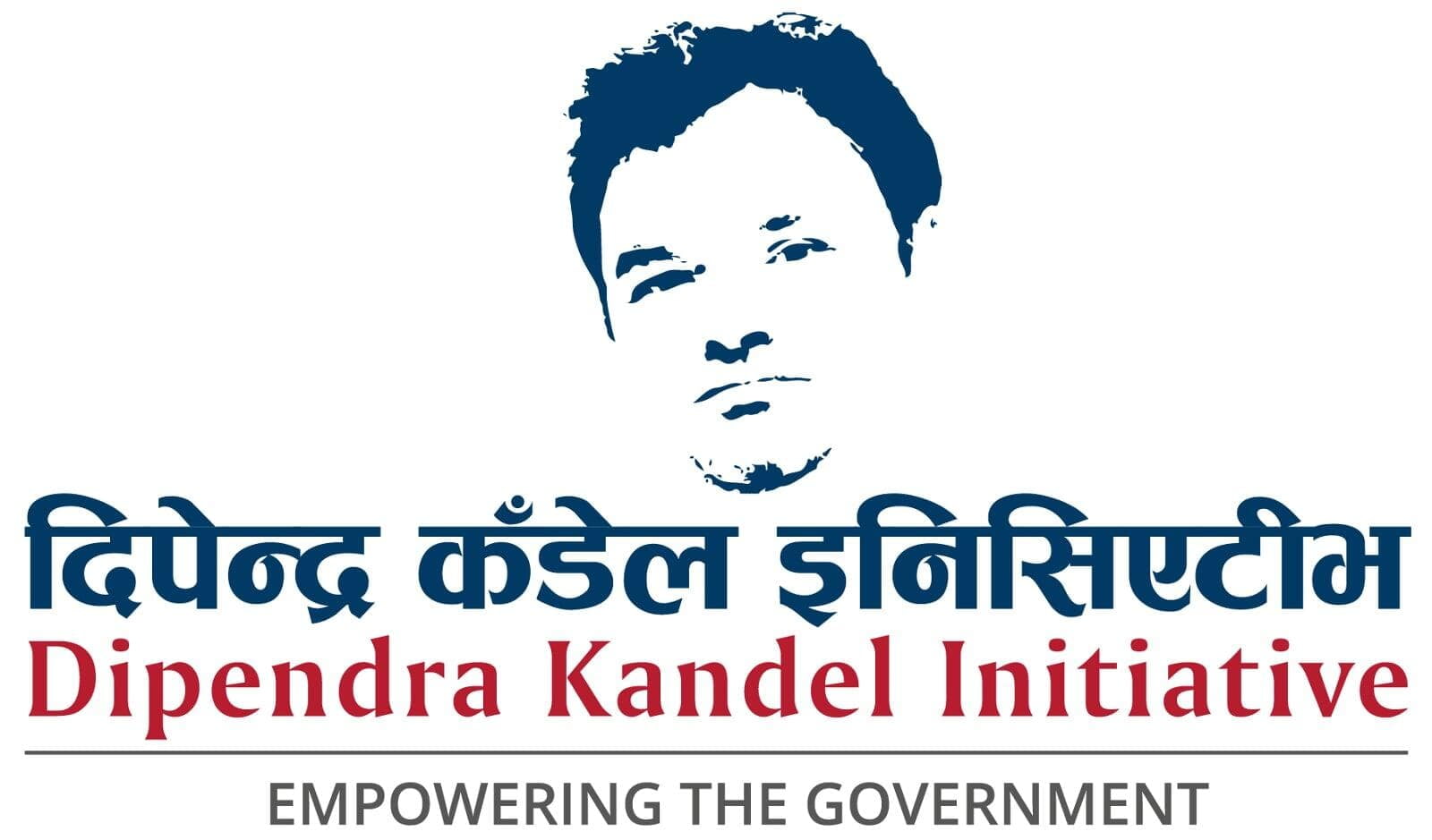Dear Readers and Stakeholders,
It's with immense pleasure and anticipation that we share the exciting news about the forthcoming launch of our first project under the guidance of President Er. Dipendra Kandel. Since the establishment of this initiative, our dedicated team has been tirelessly researching innovative solutions tailored for Nepal's progress.
This project marks a significant step forward in our commitment to bring positive change to our community. While we can't reveal all the details just yet, rest assured that it embodies our values, vision, and dedication to making a tangible difference in Nepal.
We extend our heartfelt gratitude for your unwavering support and interest in our endeavors. Your continued encouragement motivates us to strive for excellence and to deliver impactful initiatives that benefit all.
Stay tuned for updates as we prepare to unveil this project in 2024. Together, let's embark on this journey toward a brighter, more prosperous future for Nepal.
Warm regards,
Dipendra Kandel Initiative

dki1.0 "Public Policy Research"
Undertaking policy research in cooperation with global researchers to provide services to the government of Nepal at all levels is a crucial project within the Dipendra Kandel Initiative. Here's how this initiative might take shape: Collaborative Research Endeavors (Research Partnerships and Thematic Focus), Government Partnership (Engagement with Government and Policy Advisory Services), Research Methodologies (Data Collection and Analysis and Comparative Studies), Capacity Building (Training Programs and Knowledge Sharing), Policy Advocacy (Stakeholder Engagement and Policy Briefs and Reports), Sectoral Expertise (Specialized Research Areas and Impact Assessment), and Ethical Considerations (Ethical Research Practices and Conflict Sensitivity). Research Completed
dki1.1 "Research Volunteer Recruitment"
Recruiting global researchers for voluntary research work, whether remote, onsite, or hybrid, is a significant endeavor within the Dipendra Kandel Initiative. Here's how this recruitment and collaboration might operate: Volunteer Research Recruitment (Global Outreach and Skill Alignment), Research Modes (Remote Research and Onsite/Hybrid Work), Collaboration with Government (Government Engagement and Financial Support), Research Oversight (Project Management and Quality Assurance), Reporting and Dissemination (Policy Recommendations and Stakeholder Engagement), Funding and Sustainability (Resource Allocation and Long-Term Planning), and Support and Recognition (Researcher Support and Collaboration Acknowledgment). Research Completed
dki1.2 "Research Intern Recruitment"
Recruiting academic interns to support researchers as research assistants within the Dipendra Kandel Initiative presents an excellent opportunity for both learning and contribution. Here's how this initiative might be structured: Academic Intern Recruitment (University Partnerships and Internship Programs), Internship Modes (Remote Assistance and Hybrid or Onsite Roles), Intern Responsibilities (Research Support and Documentation and Reporting), Cost and Financials (Self-Supported Internship and No Financial Obligation), Learning and Development (Hands-On Experience and Mentorship and Guidance), Networking and Collaboration (Professional Connections and Team Collaboration), and
Academic Credit (University Acknowledgment and Performance Evaluation). Research Completed

dki2.0 "Diplomacy"
Cooperating with foreign governments and acting as a bridge between Nepal and other nations to enhance diplomacy across various sectors is a multifaceted project within the Dipendra Kandel Initiative. Here's how this initiative might operate across different diplomatic domains: Sister City Diplomacy (Partnership Facilitation and Collaborative Projects), Animal Diplomacy (Wildlife Conservation and Environmental Agreements), Infrastructure Diplomacy (Infrastructure Development and Technical Assistance), Election Diplomacy (Electoral Cooperation and Observer Exchanges), Sports Diplomacy (Sporting Events and Athlete Exchanges), Cultural Diplomacy (Cultural Exchanges and Cultural Heritage Preservation), Implementation and Collaboration (Diplomatic Missions and Negotiation & Mediation), Public Diplomacy (Public Engagement and Diplomatic Training), Aviation Diplomacy (Air Connectivity and Safety Standards), and Executive Education Diplomacy (Professional Training and Knowledge Exchange). For Research
dki2.1 "Animal Diplomacy"
Cooperating with both Nepal's government and international entities for animal sharing and animal welfare through animal gifts diplomacy can encompass several facets: Animal Sharing (Conservation Partnerships and Research Collaborations), Animal Welfare and Protection (Advocacy for Animal Rights and Training and Capacity Building), Animal Gifting Diplomacy (Symbolic Animal Gifting and Animal Diplomatic Events), Wildlife Preservation (Habitat Conservation and Rescue and Rehabilitation) and International Agreements (Bilateral Agreements and Multilateral Forums). For Research
dki2.2 "Aviation Diplomacy"
Aviation Diplomacy, a pivotal project within our diplomacy initiatives, seeks collaboration with the Nepal Aviation Authority and foreign aviation bodies operating flights to Nepal. This comprehensive effort encompasses various aspects such as food services, security protocols, duty-free regulations, aviation professionals' collaboration including flight attendants and pilots, flight frequency, and more. By fostering these partnerships, we aim to enhance aviation standards, streamline operations, and ensure a seamless experience for all involved in air travel. For Research
dki2.3 "City Twinning Diplomacy"
"The City Twinning Diplomacy project focuses on fostering collaborations between local governments in Nepal and their foreign counterparts. Through this initiative, we aim to strengthen diplomatic ties, facilitating exchanges and sharing of experiences between cities, thereby empowering robust relationships and cooperation between governments." Research Completed
dki2.4 "Cultural Diplomacy"
"The Cultural Diplomacy project seeks to bridge cultures by showcasing the rich heritage of Nepal to an international audience and reciprocally, bringing diverse cultures to Nepal. Through curated cultural events both within Nepal and abroad, we aim to foster understanding, appreciation, and exchange between nations, celebrating diversity and promoting cultural harmony on a global scale." For Research
dki2.5 "Election Diplomacy"
"The Election Diplomacy project focuses on establishing collaborations with election commissions worldwide, facilitating the exchange of knowledge, technology, and best practices. Serving as country representatives during central level elections, our initiative aims to foster international cooperation, share expertise, and contribute to the integrity and transparency of electoral processes globally." For Research
dki2.6 "Employment Diplomacy"
"One of our diplomacy projects, Employment Diplomacy, is dedicated to strengthening ties between the Nepali government and foreign counterparts. This initiative focuses on enhancing overseas employment opportunities for Nepali citizens, ensuring collaboration with foreign governments to bolster policies that safeguard their rights while working abroad. This proactive approach not only aims to fortify diplomatic relationships but also underscores our commitment within the Dipendra Kandel Initiative to advocate for the welfare and rights of Nepali citizens in the global job market." For Research
dki2.7 "Infrastructure Diplomacy"
Under infrastructure diplomacy, the Dipendra Kandel Initiative could focus on fostering collaborations and partnerships both domestically and internationally to advance infrastructure development. Here's how this project might unfold: International Infrastructure Collaboration (Bilateral Partnerships and Infrastructure Financing), Development Projects (Joint Infrastructure Projects and Technical Expertise Exchange), Connectivity Enhancement (Transport Networks and Digital Infrastructure), Sustainable Development (Green Infrastructure and Resilient Infrastructure), Economic Growth (Trade and Economic Zones and Investment Promotion), and Diplomatic Engagements (Diplomatic Dialogues and Cross-border Cooperation). For Research
dki2.8 "Public Leaders Education Diplomacy"
Empowering Leaders stands as a cornerstone project within the Dipendra Kandel Initiative, dedicated to enriching the skills and perspectives of Nepal's public leaders and government officials through global executive education. Our aim is to facilitate their participation alongside international counterparts, fostering a transformative exchange that not only enhances individual capacities but also forges stronger diplomatic connections between governments at all levels. For Research
dki2.9 "Sports Diplomacy"
The Sports Diplomacy project is dedicated to fostering international collaborations by inviting national teams, clubs, players, and coaches from across the globe to Nepal. Similarly, it aims to facilitate Nepali teams, players, and coaches to engage in sporting events abroad. This initiative seeks to promote cultural exchange, skill development, and sportsmanship while strengthening diplomatic ties through the universal language of sports. For Research

dki3.0 "Empowering -the- Election Observation'
Empowering Elections stands as a pivotal project within our initiative, focused on shaping election diplomacy globally and enhancing electoral processes. Our efforts involve observing election technologies, assessing the suitability of traditional versus modern voting systems like machine or electronic voting. Additionally, we aim to examine whether local election staff, volunteers, and domestic observers face challenges with their voting rights, potentially exploring the integration of international election volunteers to ensure comprehensive and fair electoral participation. Research Completed
dki3.1 "Recruitment of Election Observers"
Recruiting election observers to promote election technology and voting rights is a critical project within the realm of election observation. Here's how this initiative works: Observer Recruitment (Selection Criteria, Training Programs), Promotion of Election Technology (Education and Awareness, Demonstrations and Workshops), Protection of Voting Rights (Advocacy for Rights, Monitoring Voting Procedures), Technology Implementation (Collaboration with Authorities, Evaluation and Improvement), and Reporting and Recommendations (Observation Reports, Policy Recommendations). Research Completed
dki3.2 "Recruitment of Election Volunteers"
Recruiting global election volunteers in cooperation with participating state Election Commissions to replace domestic volunteers during electoral processes is a significant project within election observation. Here's an outline of how this initiative might unfold: Global Volunteer Recruitment (Outreach Programs, Selection Process), Partnership with Election Commissions (Collaborative Agreements, Guidelines and Training), Volunteer Placement and Support (Placement Strategy, Logistics and Assistance), Observer Training and Briefings (Pre-Election Training, On-Ground Briefings), Monitoring and Reporting (Observation and Data Collection, Reporting Mechanisms), and Post-Election Assessment (Assessment and Feedback, Lessons Learned). Research Completed

dki4.0 "Development"
The Dipendra Kandel Initiative is a multifaceted effort that aims to empower various sectors of development in Nepal, spanning agriculture, economics, infrastructure, social welfare, and community engagement through volunteering and voluntourism projects. Here's how it may approach these areas: Agriculture Development (Sustainable Farming Initiatives, Technology Adoption), Economic Empowerment (Entrepreneurial Support, Financial Inclusion), Infrastructure Development (Infrastructure Improvement, Public Services Enhancement), Social Welfare (Community Development Programs, Empowerment Initiatives), and Volunteering and Voluntourism (Volunteering Projects, Voluntourism Engagement). For Research
dki4.1 "Agriculture Development"
Empowering agriculture development in Nepal is a significant project within the Dipendra Kandel Initiative, aiming to enhance the agricultural sector's sustainability, productivity, and socio-economic impact. Here are potential initiatives or strategies that could be part of this project: Agricultural Education and Training (Farmers' Training Programs, Technology Adoption), Infrastructure Development (Irrigation Improvement, Storage and Processing Facilities), Access to Resources (Seed and Fertilizer Distribution, Financial Support), Market Access and Promotion (Market Linkages, Value Addition), Environmental Sustainability (Promotion of Sustainable Practices, Climate Resilience), and Community Engagement and Collaboration (Community-Based Programs, Partnerships with Institutions). For Research
dki4.2 "Infrastructure Development"
Infrastructure development is a vital project within the Dipendra Kandel Initiative, aiming to collaborate with governmental bodies at various levels to enhance and build critical infrastructure in Nepal. Here's how it approaches: Partnership with Government (Strategic Planning, Policy Advocacy), Infrastructure Improvement (Roads and Transportation, Utilities Enhancement), Engaging Local Communities (Community Engagement, Capacity Building), Funding and Resource Allocation (Resource Mobilization, Efficient Use of Funds), Sustainable Development (Environmental Considerations, Long-Term Viability), Monitoring and Evaluation (Project Oversight, Impact Assessment), and Collaboration for National Development (Cross-Sector Collaboration, Aligning with National Goals). For Research
dki4.3 "Social Development"
Empowering society through social development, including sports initiatives, is a powerful approach within the Dipendra Kandel Initiative. Here's how we shape this project: Sports for Empowerment (Youth Engagement, Community Integration), Skill Development (Health and Fitness, Life Skills Training), Gender Inclusivity (Empowering Women, Gender-Specific Programs), Education and Awareness (Education Programs, Community Outreach), Infrastructure and Access (Facilities Development, Inclusivity Measures), Community Cohesion (Conflict Resolution, Celebration and Unity),
and Monitoring and Impact Evaluation (Assessment Tools, Feedback and Adaptation). Research Completed
dki4.4 "Business Development"
Creating a startup incubator or supporting startup businesses is a powerful means to drive economic and social change in Nepal within the Dipendra Kandel Initiative. Here's how this project works: Entrepreneurship Development (Incubation Programs, Business Training), Innovation and Technology (Tech Innovation Support, Digital Entrepreneurship), Economic Impact (Job Creation, Local Economy Boost), Social Entrepreneurship (Social Impact Focus, Community Engagement), Funding and Investment (Access to Capital, Support Networks), Regulatory Support (Policy Advocacy, Legal Assistance), and Monitoring and Growth (Performance Evaluation, Scaling Support). Research Completed
dki4.5 "Volunteering/tourism"
Engaging volunteers and promoting voluntourism can be a powerful project within the Dipendra Kandel Initiative to support various social development projects in Nepal. Here's how this project proceeds: Volunteer Recruitment and Management (Recruitment Drives, Skills Assessment), Project Selection and Diversity (Project Catalog, Customized Placements), Training and Orientation (Pre-Departure Training, On-Site Orientation), Project Engagement (Hands-On Support, Collaborative Efforts), Community Integration (Cultural Immersion, Local Participation), Impact Assessment (Monitoring and Evaluation, Feedback Mechanisms), Sustainability and Legacy (Capacity Building, Documentation and Sharing), and Ethical Considerations (Ethical Volunteering Practices, Responsible Tourism). Research Completed

dki5.0 "Empowering -the- Expats"
Supporting expatriates, whether foreign nationals in Nepal or Nepali citizens living abroad, can be a vital project within the Dipendra Kandel Initiative. Here's how this initiative structures: Expatriate Services (Information and Guidance, Community Engagement), Legal and Consular Assistance (Legal Aid, Consular Support), Education and Employment (Educational Resources, Career Support), Cultural Exchange and Awareness (Cultural Programs, Awareness Campaigns), Healthcare and Well-being (Healthcare Guidance, Mental Health Support), Networking and Support Groups (Expatriate Communities, Online Forums), and Advocacy and Representation (Advocacy Initiatives, Policy Recommendations).
dki5.1 "International Expatriate Support"
Supporting international expatriates in Nepal, in collaboration with their embassies in Nepal or nearby in India, can involve various services and assistance aimed at ensuring their well-being and addressing their needs. Here's an approach this initiative might take: Consular Support (Coordination with Embassies and Consular Services), Information and Guidance (Cultural Orientation and Country-specific Assistance), Emergency Assistance (Emergency Hotline and Evacuation Planning), Community Engagement (Expatriate Networks and Cultural Events), Healthcare and Well-being (Healthcare Guidance and Mental Health Support), Legal and Employment Assistance (Legal Advice and Employment Information), and Advocacy and Representation (Advocating for Rights and Policy Recommendations). Research Completed
dki5.2 "Nepali Expatriate Support"
Supporting Nepali expatriates abroad, especially in the absence of direct government support, requires a concerted effort involving collaboration with Nepali embassies, non-governmental organizations (NGOs), and foreign governments. Here's an approach this initiative might take: Consular and Advisory Services (Collaboration with Nepali Embassies and Information Dissemination), Emergency Assistance (Emergency Hotline or Support and Coordination for Evacuation), Community Support (Community Engagement and Online Platforms), Welfare and Well-being (Healthcare Assistance and Counseling Services), Legal and Employment Support (Legal Guidance and Employment Information), Advocacy and Representation (Engagement with NGOs and Foreign Government Liaison), and Policy Recommendations (Policy Advocacy and Partnership Development). Research Completed

dki6.0 "Empowering -the- Humanitarianism"
Humanitarian efforts encompass a wide range of actions and initiatives aimed at relieving human suffering, preserving human dignity, and responding to crises, conflicts, or disasters. Here are some key aspects of humanitarian efforts: Emergency Response (Immediate Aid, Search and Rescue), Rehabilitation and Recovery (Infrastructure Rebuilding, Psychosocial Support), Protection and Advocacy (Rights Protection, Legal Aid Services), Healthcare and Nutrition (Medical Assistance, Nutritional Support), Education and Empowerment (Temporary Schools, Community Empowerment), Water, Sanitation, and Hygiene (WASH) (Access to Clean Water, Preventing Diseases), Environmental Sustainability (Disaster Risk Reduction, Climate Adaptation), Conflict Resolution and Peacebuilding (Peacekeeping Operations, Community Dialogue), and Technology and Innovation (Innovative Solutions, Early Warning Systems).
dki6.1 "Emergency Response"
"Financial human rights" refers to the rights individuals have in relation to economic and financial matters. These rights are fundamental to ensuring people's well-being, dignity, and equal participation in economic activities. Here are some key aspects: Right to Economic Participation (Employment Rights, Access to Financial Services), Right to Adequate Standard of Living (Right to Housing, Right to Food and Water), Right to Social Security (Social Protection, Assistance for Vulnerable Groups), Right to Fair and Equal Treatment (Consumer Rights, Fair Credit and Lending), Right to Education and Information (Financial Literacy, Access to Information), and Right to Property and Ownership (Property Rights, Protection against Financial Exploitation). Research Completed
dki6.1 "Financial Human Rights"
"Financial human rights" refers to the rights individuals have in relation to economic and financial matters. These rights are fundamental to ensuring people's well-being, dignity, and equal participation in economic activities. Here are some key aspects: Right to Economic Participation (Employment Rights, Access to Financial Services), Right to Adequate Standard of Living (Right to Housing, Right to Food and Water), Right to Social Security (Social Protection, Assistance for Vulnerable Groups), Right to Fair and Equal Treatment (Consumer Rights, Fair Credit and Lending), Right to Education and Information (Financial Literacy, Access to Information), and Right to Property and Ownership (Property Rights, Protection against Financial Exploitation). Research Completed
dki6.2 "Advocating Unjust Banking Decision"
Dipendra Kandel's initiative appears to advocate for Nepali citizens facing unjust banking decisions, aiming to protect their financial rights and ensure fair treatment within the banking sector. Here's how such an initiative might work: Legal Support and Advocacy (Legal Assistance, Advocacy for Policy Changes), Awareness and Empowerment (Consumer Education, Empowering Consumers), Accountability and Transparency (Demanding Transparency, Monitoring and Reporting), Support for Vulnerable Individuals (Assistance Programs, Ensuring Inclusivity), Collaborative Efforts (Partnerships, Dialogue with Financial Institutions), and Redress and Resolution (Complaint Mechanisms, Legal Recourse). Research Completed
dki6.3 "Advocating Against Un Ethical Foreign Recruitment"
Dipendra Kandel Initiative focuses on protecting the rights of Nepali citizens seeking overseas employment. By providing recruitment process governance services, this initiative likely involves: Ensuring Ethical Recruitment (Governance Oversight, Fair Practices), Protecting Against Exploitation (Preventing Abuse, Rights Education), Offering Support and Guidance (Guidance Services, Redress Mechanisms), Advocacy for Citizen Rights (Policy Advocacy, Legal Assistance), and Collaborating with Recruitment Entities (Engaging Agencies, Training and Compliance). Ongoing Research
dki6.4 "Advocating Against Unjust Immigration Denials"
Dipendra Kandel's initiative advocate against unjust foreign immigration decisions is vital for safeguarding fair treatment within immigration processes. Here's how we operate: Advocacy and Legal Support (Legal Aid, Representation), Policy Engagement (Policy Advocacy, Addressing Systemic Issues), Awareness and Education (Public Education, Documentation Guidance), Collaboration and Networking (Partnerships, Community Engagement), Media Engagement (Media Outreach, Sharing Stories), and International Cooperation (Advocacy at International Forums, Diplomatic Channels). Research Completed
dki6.3 "Fight Against Labor Trafficking"
Dipendra Kandel's initiative plays a critical role in combating labor trafficking by addressing its root causes, supporting victims, and implementing preventive measures. Here's how humanitarian efforts contribute to fighting against labor trafficking: Prevention (Community Support Programs, Education and Awareness Campaigns), Protection and Support for Victims (Rescue and Rehabilitation, Legal Aid and Advocacy), Capacity Building and Collaboration (Training and Capacity Building, Collaboration with Stakeholders), Policy Advocacy (Policy Reforms, Promoting Ethical Practices), and Research and Data Collection (Research Initiatives, Information Sharing). Research Completed
dki6.4 "Advocating For Financial Restitution"
Fighting for international financial restitution for Nepali citizens residing in Nepal involves a strategic and multi-faceted approach. Here are some key steps and strategies that your organization or initiative can consider: (Legal Advocacy, Documentation and Evidence, Diplomatic Engagement, International Organizations and Agencies, NGO and Civil Society Partnerships, Public Awareness Campaigns, Government Advocacy, Empowerment Programs, Coalition Building, Media Engagement, Research and Policy Advocacy, and International Conferences and Forums.)
Sustainable Development Goals

Eradicating poverty is not a task of charity, it’s an act of justice and the key to unlocking an enormous human potential. Still, nearly half of the world’s population lives in poverty, and lack of food and clean water is killing thousands every single day of the year. Together, we can feed the hungry, wipe out disease and give everyone in the world a chance to prosper and live a productive and rich life.

Hunger is the leading cause of death in the world. Our planet has provided us with tremendous resources, but unequal access and inefficient handling leaves millions of people malnourished. If we promote sustainable agriculture with modern technologies and fair distribution systems, we can sustain the whole world’s population and make sure that nobody will ever suffer from hunger again.

Over the last 15 years, the number of childhood deaths has been cut in half. This proves that it is possible to win the fight against almost every disease. Still, we are spending an astonishing amount of money and resources on treating illnesses that are surprisingly easy to prevent. The new goal for worldwide Good Health promotes healthy lifestyles, preventive measures and modern, efficient healthcare for everyone.

Education liberates the intellect, unlocks the imagination and is fundamental for self-respect. It is the key to prosperity and opens a world of opportunities, making it possible for each of us to contribute to a progressive, healthy society. Learning benefits every human being and should be available to all.

Gender bias is undermining our social fabric and devalues all of us. It is not just a human rights issue; it is a tremendous waste of the world’s human potential. By denying women equal rights, we deny half the population a chance to live life at its fullest. Political, economic and social equality for women will benefit all the world’s citizens. Together we can eradicate prejudice and work for equal rights and respect for all.

One in three people live without sanitation. This is causing unnecessary disease and death. Although huge strides have been made with access to clean drinking water, lack of sanitation is undermining these advances. If we provide affordable equipment and education in hygiene practices, we can stop this senseless suffering and loss of life.

Renewable energy solutions are becoming cheaper, more reliable and more efficient every day. Our current reliance on fossil fuels is unsustainable and harmful to the planet, which is why we have to change the way we produce and consume energy. Implementing these new energy solutions as fast as possible is essential to counter climate change, one of the biggest threats to our own survival.

Economic growth should be a positive force for the whole planet. This is why we must make sure that financial progress creates decent and fulfilling jobs while not harming the environment. We must protect labour rights and once and for all put a stop to modern slavery and child labour. If we promote job creation with expanded access to banking and financial services, we can make sure that everybody gets the benefits of entrepreneurship and innovation.

A functioning and resilient infrastructure is the foundation of every successful community. To meet future challenges, our industries and infrastructure must be upgraded. For this, we need to promote innovative sustainable technologies and ensure equal and universal access to information and financial markets. This will bring prosperity, create jobs and make sure that we build stable and prosperous societies across the globe.

Too much of the world’s wealth is held by a very small group of people. This often leads to financial and social discrimination. In order for nations to flourish, equality and prosperity must be available to everyone – regardless of gender, race, religious beliefs or economic status. When every individual is self sufficient, the entire world prospers.

The world’s population is constantly increasing. To accommodate everyone, we need to build modern, sustainable cities. For all of us to survive and prosper, we need new, intelligent urban planning that creates safe, affordable and resilient cities with green and culturally inspiring living conditions.

Our planet has provided us with an abundance of natural resources. But we have not utilized them responsibly and currently consume far beyond what our planet can provide. We must learn how to use and produce in sustainable ways that will reverse the harm that we have inflicted on the planet.

Climate change is a real and undeniable threat to our entire civilization. The effects are already visible and will be catastrophic unless we act now. Through education, innovation and adherence to our climate commitments, we can make the necessary changes to protect the planet. These changes also provide huge opportunities to modernize our infrastructure which will create new jobs and promote greater prosperity across the globe.

Healthy oceans and seas are essential to our existence. They cover 70 percent of our planet and we rely on them for food, energy and water. Yet, we have managed to do tremendous damage to these precious resources. We must protect them by eliminating pollution and overfishing and immediately start to responsibly manage and protect all marine life around the world.

A flourishing life on land is the foundation for our life on this planet. We are all part of the planet’s ecosystem and we have caused severe damage to it through deforestation, loss of natural habitats and land degradation. Promoting a sustainable use of our ecosystems and preserving biodiversity is not a cause. It is the key to our own survival.

Compassion and a strong moral compass is essential to every democratic society. Yet, persecution, injustice and abuse still runs rampant and is tearing at the very fabric of civilization. We must ensure that we have strong institutions, global standards of justice, and a commitment to peace everywhere.

The Global Goals can only be met if we work together. International investments and support is needed to ensure innovative technological development, fair trade and market access, especially for developing countries. To build a better world, we need to be supportive, empathetic, inventive, passionate, and above all, cooperative.
